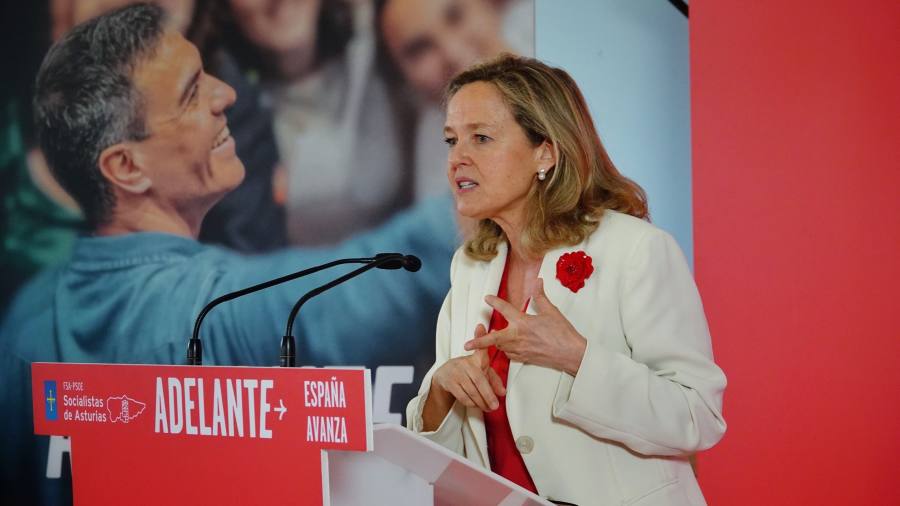Receive free European Investment Bank updates
We’ll send you a myFT Daily Digest email rounding up the latest European Investment Bank news every morning.
Spain has put forward deputy prime minister Nadia Calviño as its candidate to run the European Investment Bank, intensifying the race to lead the world’s largest multilateral lender.
A former European Commission official, Calviño will go up against several other candidates for the hotly contested role, which has never been held by a woman, including Margrethe Vestager, EU competition and digital regulation commissioner.
The EIB, which has a balance sheet of about €550bn, is expected to take a role in financing Ukraine’s postwar reconstruction. It is looking to replace Werner Hoyer, a German who has been its president for more than a decade, when his term ends in December.
The EIB’s shareholders are the EU’s 27 member states, and the bloc’s finance ministers are expected to choose a new chief at a meeting in September. The successful candidate will need the backing of both Germany and France.
Calviño was proposed on Friday by the caretaker government of acting prime minister Pedro Sánchez. Spain remains in political limbo following an inconclusive general election in July.
She has served as Spain’s economy minister for the past five years and as deputy prime minister since 2020, helping to steer the country through the pandemic and manage some of the €164bn in EU recovery funds that the eurozone’s fourth-largest economy is due to receive.
Spain is eager to have one of its own nationals at the top of the Luxembourg-based institution for the first time.
A Spanish government official, who confirmed the nomination, said Calviño deserved credit for the performance of Spain’s economy, including its high employment by national standards and low inflation compared to most of its European peers, and its “booming domestic and foreign investment”.
The official said that Calviño had “the full support” of Sánchez and would continue to perform her duties as deputy prime minister until the end of the year, when Spain’s six-month presidency of the EU will also finish.
Vestager, formerly Denmark’s economy and interior minister, was proposed by Copenhagen to lead the EIB in June. She was the frontrunner for the job, but lost the support of some capitals, notably Paris, after appointing an American economist for a senior role in Brussels — a controversial decision she later had to reverse.
Other candidates for the role include Daniele Franco, Italy’s former finance minister; the EIB’s Polish vice-president Teresa Czerwińska; and its Swedish vice-president Thomas Östros.
The EIB would not comment on the candidates to replace Hoyer.
Additional reporting by Javier Espinoza
Read the full article here




